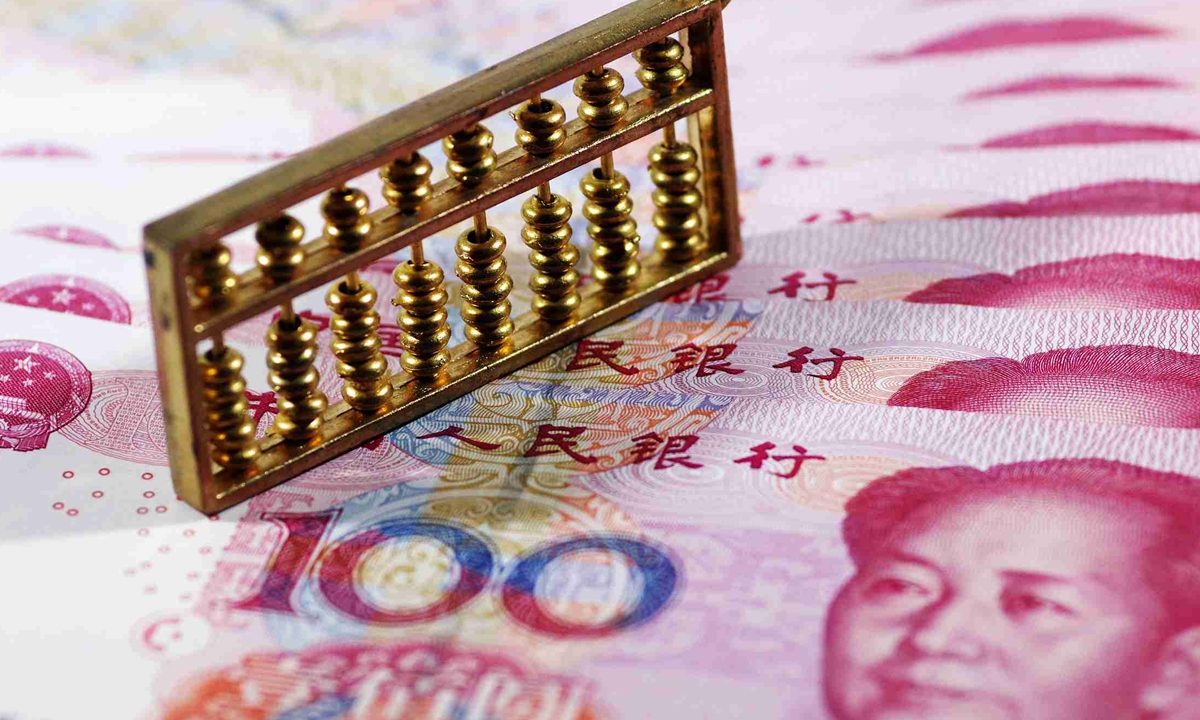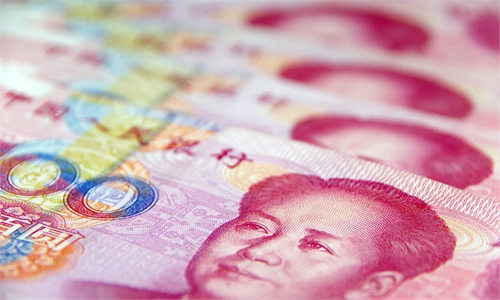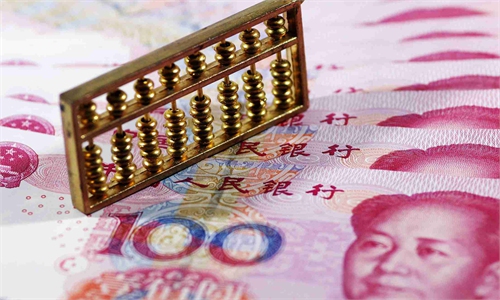
Chinese yuan Photo:VCG
The yuan's exchange rate is expected to maintain two-way fluctuation in the second half of 2023, as China's central bank has abundant tools to stabilize the rate, whereas the US dollar may lose steam as the Federal Reserve ends its tightening campaign, analysts said.
At 6 pm on Wednesday, the offshore yuan against the US dollar weakened to 7.3167 per dollar, depreciating about 1,700 pips in the past two weeks, public data showed. The onshore yuan stood at 7.2950 per dollar at the same time.
The central parity rate of the yuan weakened 218 pips to 7.1986 against the US dollar on Wednesday, according to the China Foreign Exchange Trade System.
The drop in the yuan's exchange rate was unexpected after a strong rebound in July. Analysts said that the yuan's short-term fluctuations are normal, which shows that China lets the market force decide the exchange rate.
"The recent fall in the yuan's value was mainly due to a stronger dollar, which is above 103 now. Other major currencies such as the yen, euro and pound also declined," Zhao Qingming, a Beijing-based veteran financial analyst, told the Global Times on Wednesday.
The People's Bank of China on Tuesday cut the interest rate of the medium-term lending facility (MLF), widening China-US interest rate spread. Some major macroeconomic data also reflect the challenges faced by the Chinese economy. Adding it all up, the yuan will be under pressure in the short term, Zhao said.
Zhou Maohua, an economist at Everbright Bank, told the Global Times that the central bank has many ways to stabilize the yuan - for example, the foreign exchange deposit reserve requirement ratio and the countercyclical adjustment factor.
Analysts said that the yuan's exchange rate will remain largely stable, with two-way fluctuations in the second half of the year.
"Thanks to strengthened macroeconomic policies, the upward momentum of the Chinese economy continues. Moreover, the orderly two-way flow of cross-border capital, the basic balance of international payments and the country's foreign exchange reserves of over $3 trillion provide solid support for the yuan," Zhou said.
He noted that the US Dollar Index is unlikely to rise too much as the Fed's interest rate hikes cycle is nearing its end.
"China's foreign exchange market operations were 'reasonable and orderly' in July and the foreign exchange supply and demand remained stable," Wang Chunying, deputy head of the State Administration of Foreign Exchange, said at a press conference on Tuesday.
In July, the net inflow of cross-border capital under merchandise trade remained higher than the average level seen in the first half of the year. The net inflow of cross-border capital via foreign direct investment in China rebounded in July, Wang said.
"This round of financial tightening in other major economies will end and related spillovers will ease. The fundamentals of the Chinese economy remain unchanged. As policies continue to produce positive effects, the Chinese economy will continue to recover in the second half of the year," Wang said.
The stable operation of the country's foreign exchange market has a solid foundation, Wang said, citing China's increasingly stable balance of payments structure, more rational behavior by market entities and an improvement in macro-prudential regulation.
Global Times



